Taking time to restore your mind and body in a peaceful space outdoors can improve your capacity to cope with stress.
UC Davis offers a number of unique places and opportunities to restore, from gardens and hammocks to acknowledging the land through its living history and peoples.
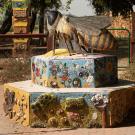
Häagen-Daz Honey Bee Haven
The Häagen-Dazs Honey Bee Haven is a unique outdoor museum where visitors can observe and learn about bees and the plants that support them. It is open year-round during daylight hours.
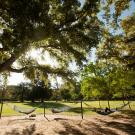
Hammocks on the Quad
Feeling stressed and overwhelmed due to the hectic nature of the quarter system? Take a break and relax in one of the twelve hammocks that line the East and West Quad.
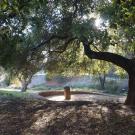
Native American Contemplative Garden
Native American Contemplative Garden honors the Patwin people and the land that, for thousands of years, has been their home. The garden is part of the campuswide Native American Honoring Project.
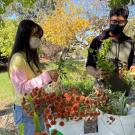
Nature Rx Videos
Can’t get outside but still want some inspirational Nature Rx time? Check out our Nature Rx videos of past events, with topics ranging from designing gardens for biodiversity, Japanese flower arranging, nature photography, and more.
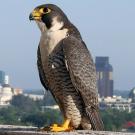
Peregrine Falcon Livestream
Watch the livestream from the rooftop of the UC Davis Medical Center in Sacramento allowing viewers to tune in to watch the hospital’s peregrine falcon family with their cute newborns.
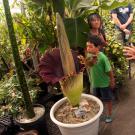
UC Davis Botanical Conservatory
The UC Davis Botanical Conservatory houses a collection of more than 3,000 plant species both rare and common in greenhouses. The plants are used for everything from teaching in biology labs, to experimentation by researchers, to showing elementary school kids what plants have to offer.
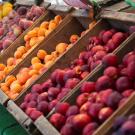
UC Davis Farmer's Market
In partnership with the Davis Farmer’s Market, the UC Davis Farmers Market aims to boost the health of our community by making nourishing and locally grown fruits and vegetables available during fall and spring quarters on the West Quad on the Davis campus.
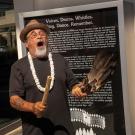
UC Davis Land Acknowledgment
Connect to this place by honoring the indigenous people and land on which the Davis campus is located.

